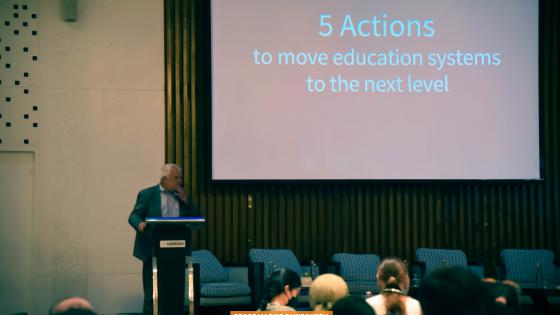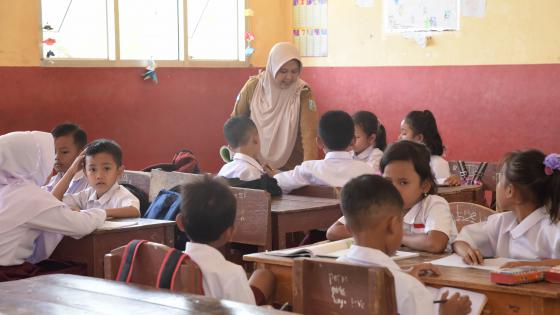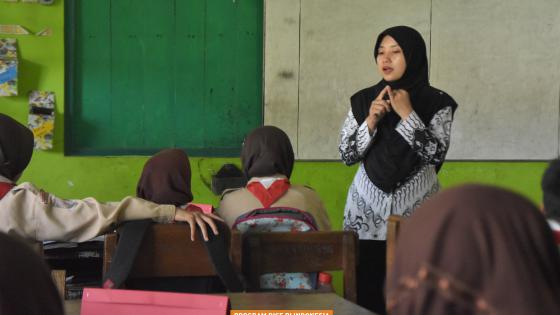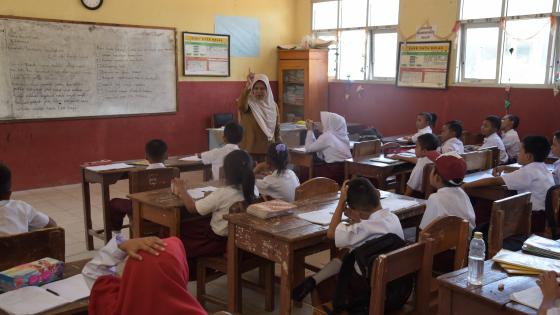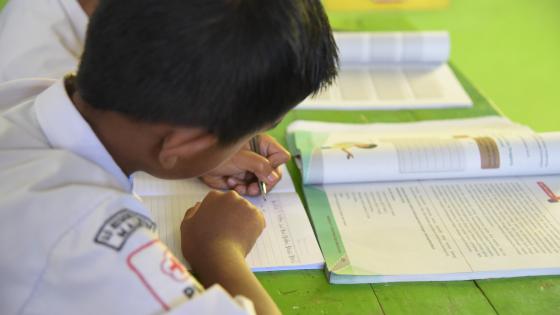Photo illustration: Novita Eka Syaputri
This article is part of the Teachers' Notes series on beginning teachers' career expectations.
After resigning from my previous teaching job in Magelang District, I now teach at a school in Magelang City. Praise be to God, I got accepted as a prospective civil servant this year. My four-year dedication as a non-permanent teacher has paid off.
Becoming a civil servant is every teacher’s dream in this country. Working in a new place with a new status surely needs adjustment, especially with the new environment. I want to create a working space that feels like home and bring forward friendly relationship among colleagues. As a teacher, I have quite a bit of experience so I think it would not be too difficult for me to adjust.
I used to think that civil servants can't grow their career similar to the way of private employees. I was wrong. Civil servant teachers can develop their careers in a number of ways, ranging from promotion, becoming a school principal or a school supervisor, to working in an education office.
When one becomes a school supervisor or has a higher rank, I think that person can no longer be called a teacher. A school supervisor does not work at the school nor teach students, but instead monitor and supervise the course of the education process in schools.
At this point, I want to be a teacher who works at a school for the next decade. I want to be a teacher who can help develop students’ potential while providing general knowledge to them.
I always advise my students, especially primary school students, that we never know what kind of knowledge we will need in the future. Therefore, they must continue to learn the three basic lessons in primary school because the lessons will give them a strong foundation for their learning in the next level of education.
The three basic lessons are reading, writing, and numeracy. I think these three lessons will be of great value for students, regardless of their aspirations and future jobs.
*This Note was written by WA, a primary school teacher in Central Java.
**All articles published in the Teachers' Notes are the views of the authors. They have been edited for popular writing purposes and do not represent the views of RISE Programme in Indonesia or RISE's funders.

